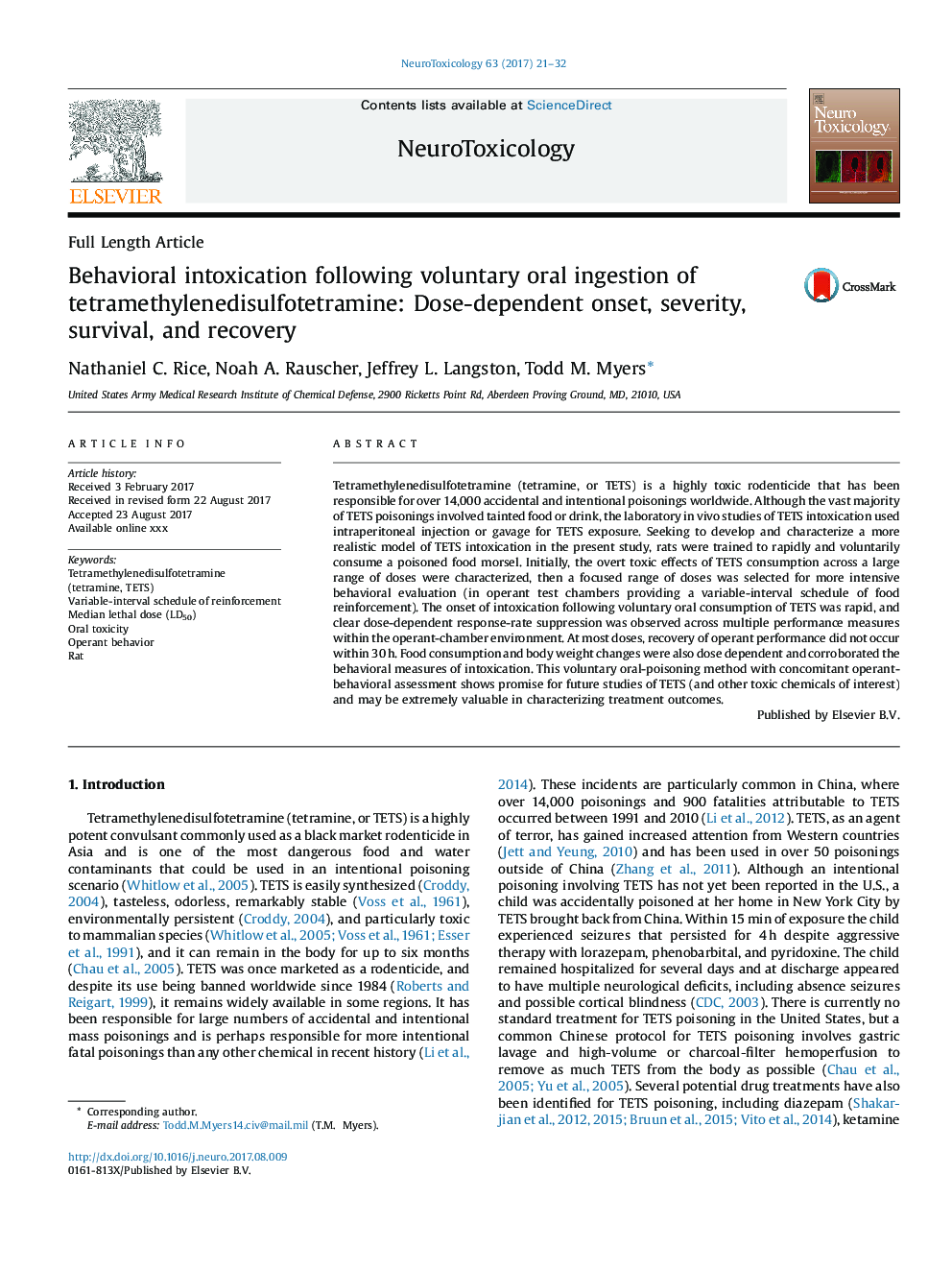| کد مقاله | کد نشریه | سال انتشار | مقاله انگلیسی | نسخه تمام متن |
|---|---|---|---|---|
| 5560762 | 1562031 | 2017 | 12 صفحه PDF | دانلود رایگان |

- Tetramethylenedisulfotetramine is a rodenticide implicated in over 14,000 poisonings.
- Rats were trained to rapidly and voluntarily consume a poisoned food morsel.
- Overt/behavioral toxic effects of TETS across a range of doses were characterized.
- Intoxication onset was rapid (<5Â min) and observed across multiple operant measures.
- At most doses, recovery of operant performance did not occur within 30Â h.
Tetramethylenedisulfotetramine (tetramine, or TETS) is a highly toxic rodenticide that has been responsible for over 14,000 accidental and intentional poisonings worldwide. Although the vast majority of TETS poisonings involved tainted food or drink, the laboratory in vivo studies of TETS intoxication used intraperitoneal injection or gavage for TETS exposure. Seeking to develop and characterize a more realistic model of TETS intoxication in the present study, rats were trained to rapidly and voluntarily consume a poisoned food morsel. Initially, the overt toxic effects of TETS consumption across a large range of doses were characterized, then a focused range of doses was selected for more intensive behavioral evaluation (in operant test chambers providing a variable-interval schedule of food reinforcement). The onset of intoxication following voluntary oral consumption of TETS was rapid, and clear dose-dependent response-rate suppression was observed across multiple performance measures within the operant-chamber environment. At most doses, recovery of operant performance did not occur within 30Â h. Food consumption and body weight changes were also dose dependent and corroborated the behavioral measures of intoxication. This voluntary oral-poisoning method with concomitant operant-behavioral assessment shows promise for future studies of TETS (and other toxic chemicals of interest) and may be extremely valuable in characterizing treatment outcomes.
Journal: NeuroToxicology - Volume 63, December 2017, Pages 21-32